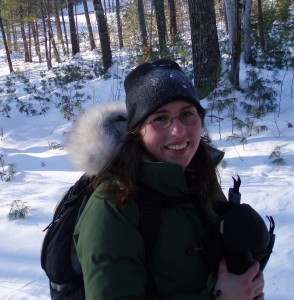Tuesday, November 12th
An overview of insect sensory systems and why we study them
Damon Crook
Insect Chemical Ecologist
APHIS USDA MA
The Forest Pest Methods Laboratory in Cape Cod, MA, provides research and tools for detection, survey and control of exotic pests that safeguard the agricultural commodities, natural resources, and trade of the USA. Our lab provides method development for commodity treatments, Biocontrol, Molecular ID, Trapping, Lure Development and General Ecology/Behavior. An important part of our labs research is to identify attractants for new invasive pests so that monitoring surveys can be quickly established. This presentation will give a brief overview of insect sensory systems and the electrophysiological methods we use to study them. Research examples from our lab will include important invasive pests such as the emerald ash borer Agrilus planipennis, Asian Longhorn Beetle, Anoplophora glabripennis and the coconut rhinoceros beetle, Oryctes rhinoceros.
Tuesday, May 8, 2012
7:30 PM
Bats vs. Moths: an evolutionary arms race
MCZ 101, 26 Oxford Street, Harvard University

Jessica Walden-Gray
Jessica Walden-Gray, Boston University
Bats and moths have been trapped in an evolutionary arms race for over 50 million years. Bats “see” the sensory world in sound and insects have evolved an array of tools to exploit echolocation to stay one wing beat ahead of bats. Moths have adapted ears and ultrasonic cries to avoid bats and jam bat sonar. Ms. Walden Gray will focus on the adaptations of tiger moths to avoid bat predation and introduce a species of tiger moth that has co-opted its bat ears for sexual communication.
The talk is free and open to the public. The meeting is readily accessible via public transportation. Parking is available in the Oxford Street Garage with advance arrangement, as described here, or (usually but not always) at spaces on nearby streets. Everyone is also welcome to join us for dinner before the talk (beginning at 6:00 PM) at the Cambridge Common restaurant on Massachusetts Avenue.
CEC meetings are held the second Tuesday of the month from October through May. The evening schedule typically includes an informal dinner (6 to 7 PM) followed by our formal meeting (7:30 – 9:00 PM). The latter begins with club business and is followed by a 50 minute entomology related presentation. Membership is open to amateur and professional entomologists.




